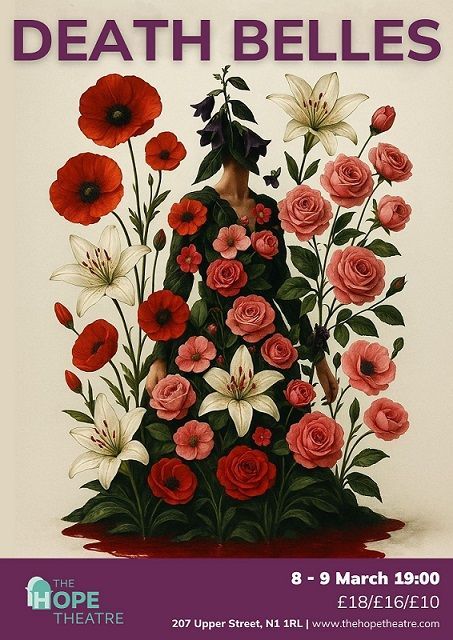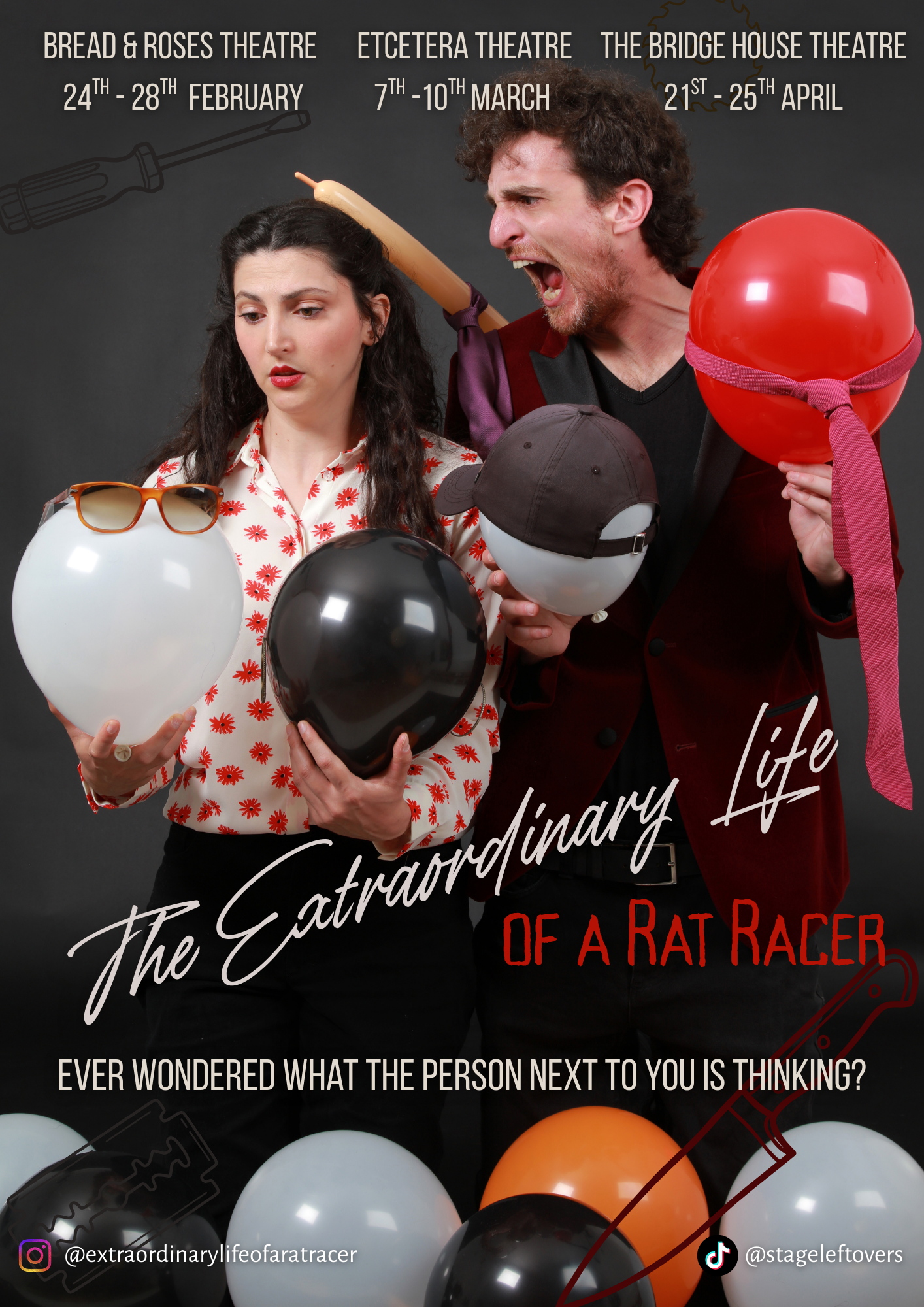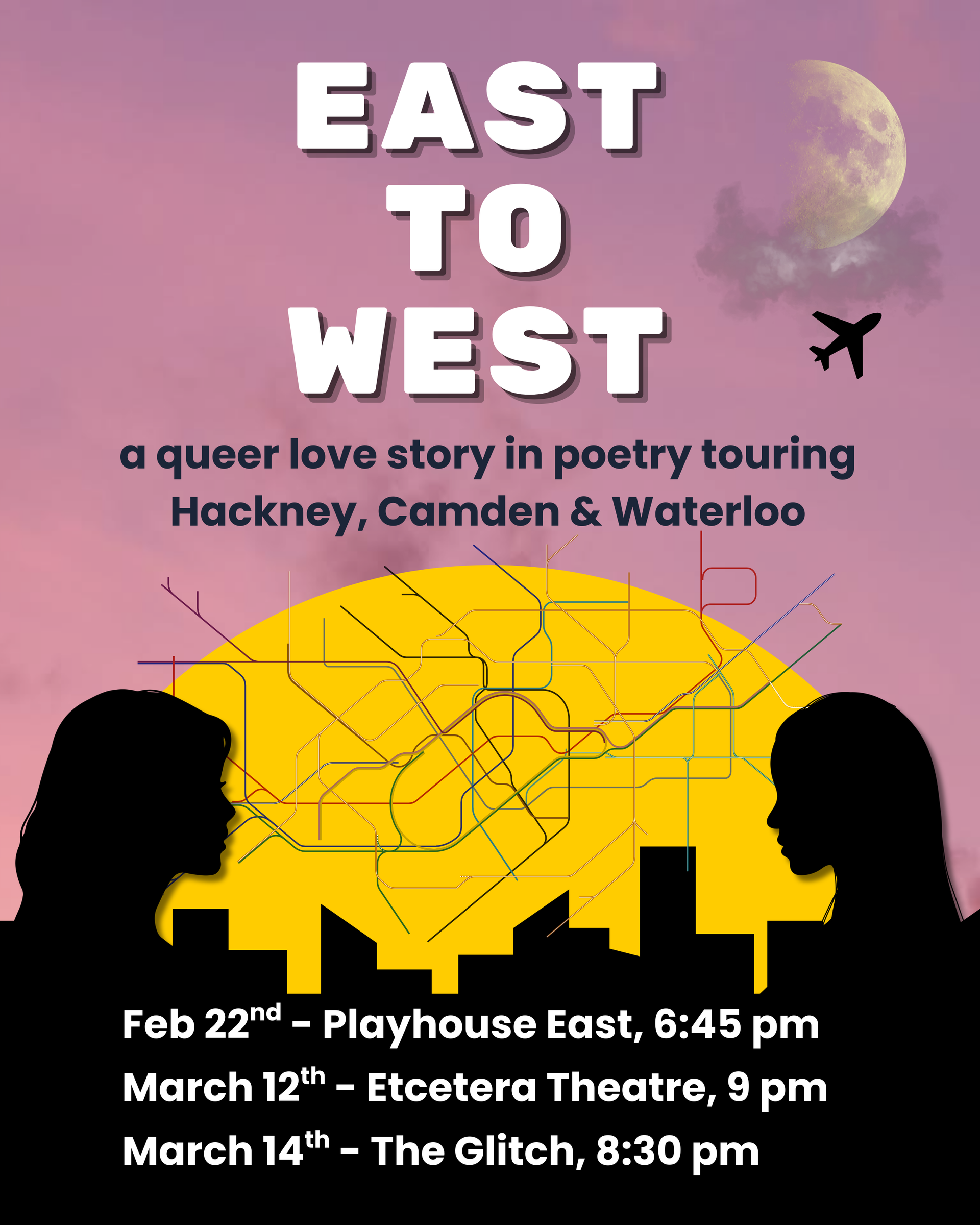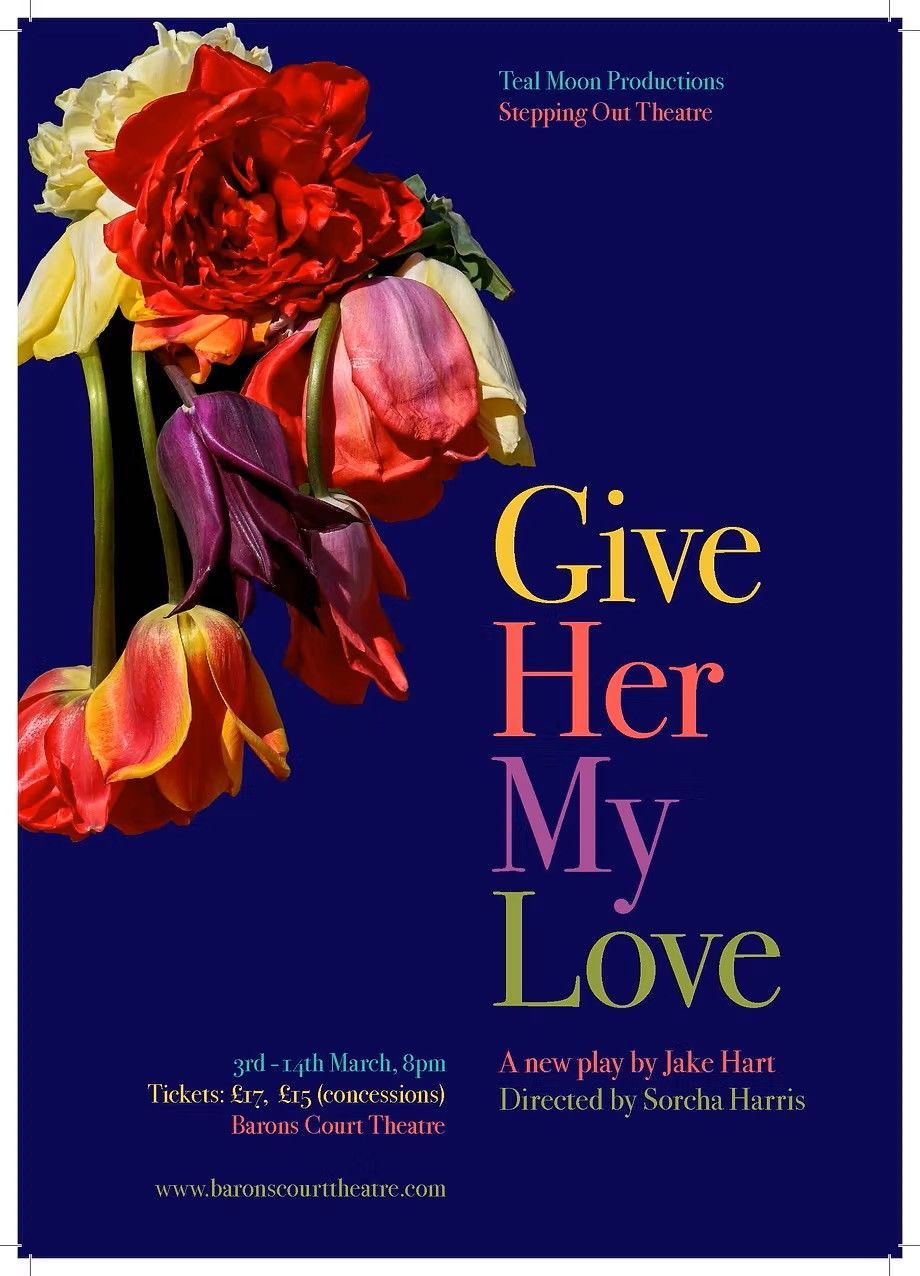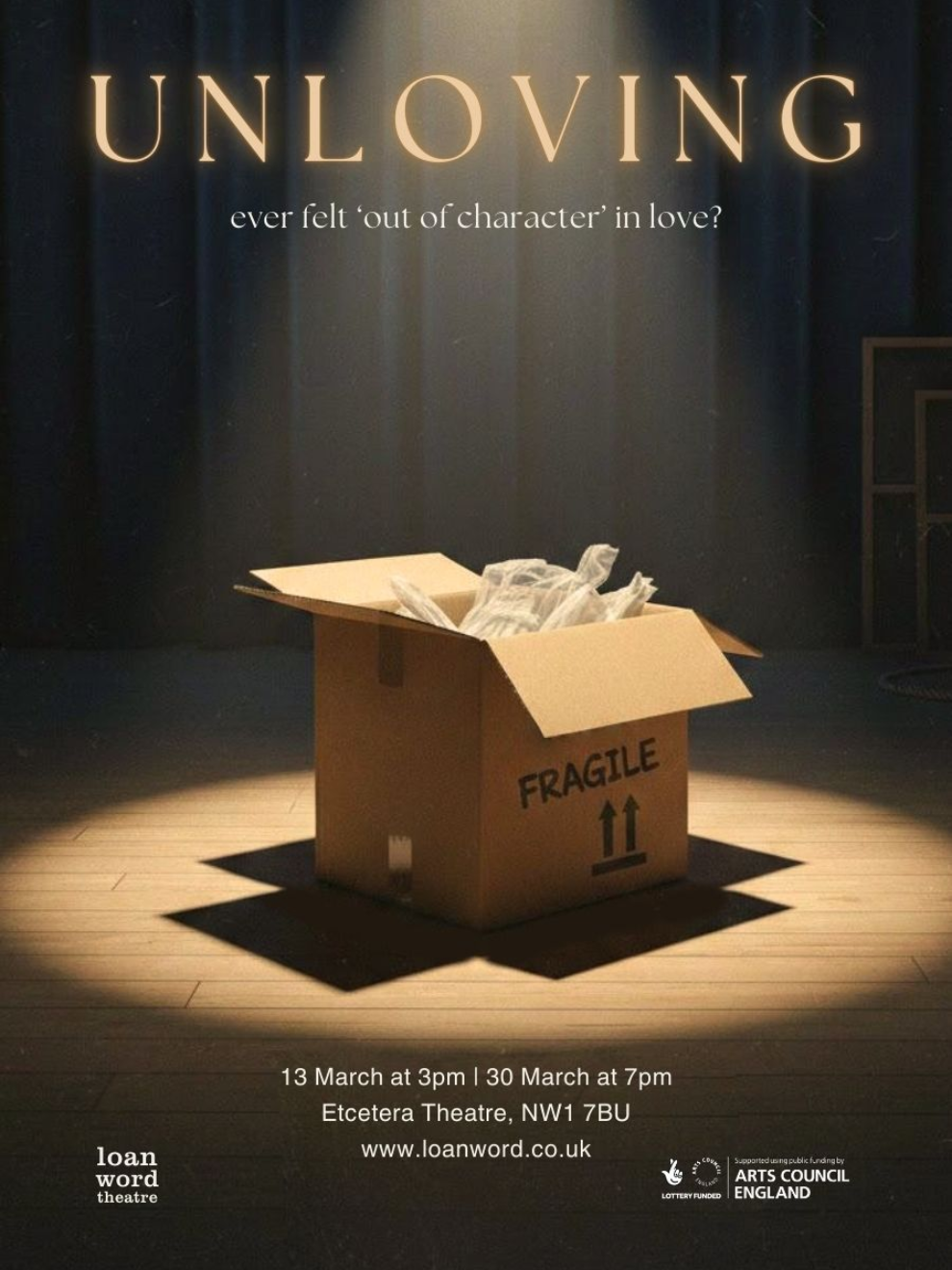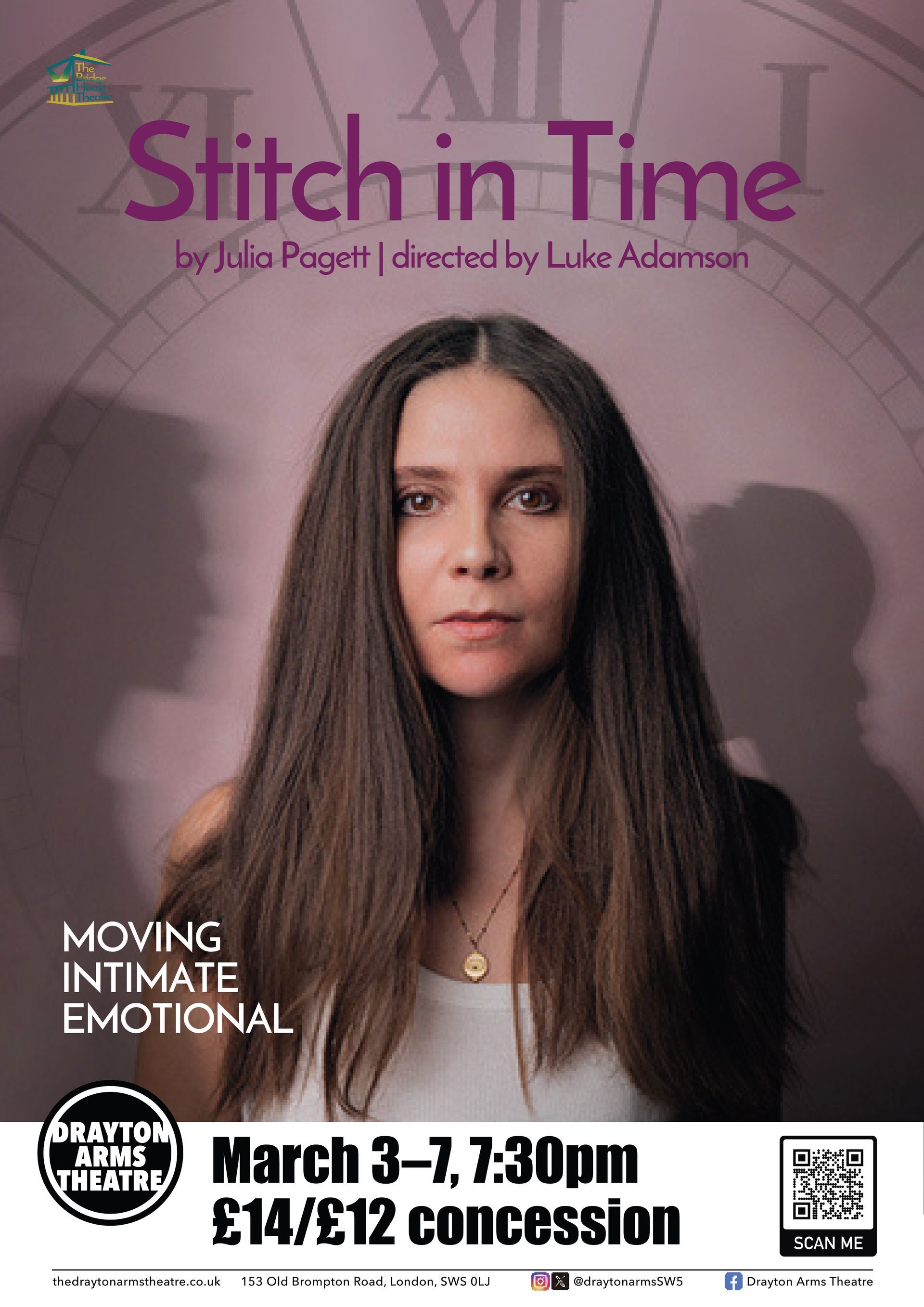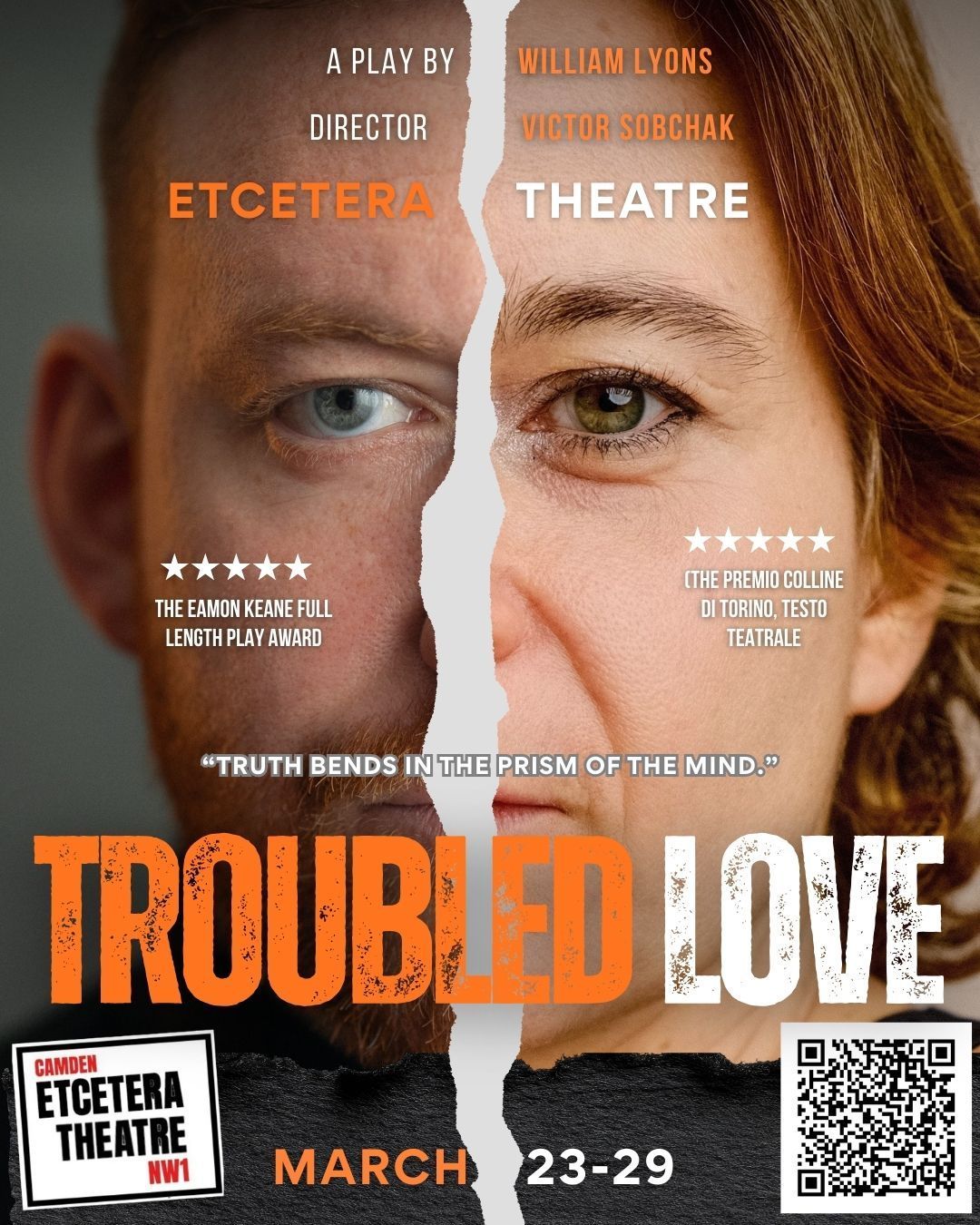REVIEW: BLOOD ON YOUR HANDS at Southwark Playhouse 17 January – 3 February 2024
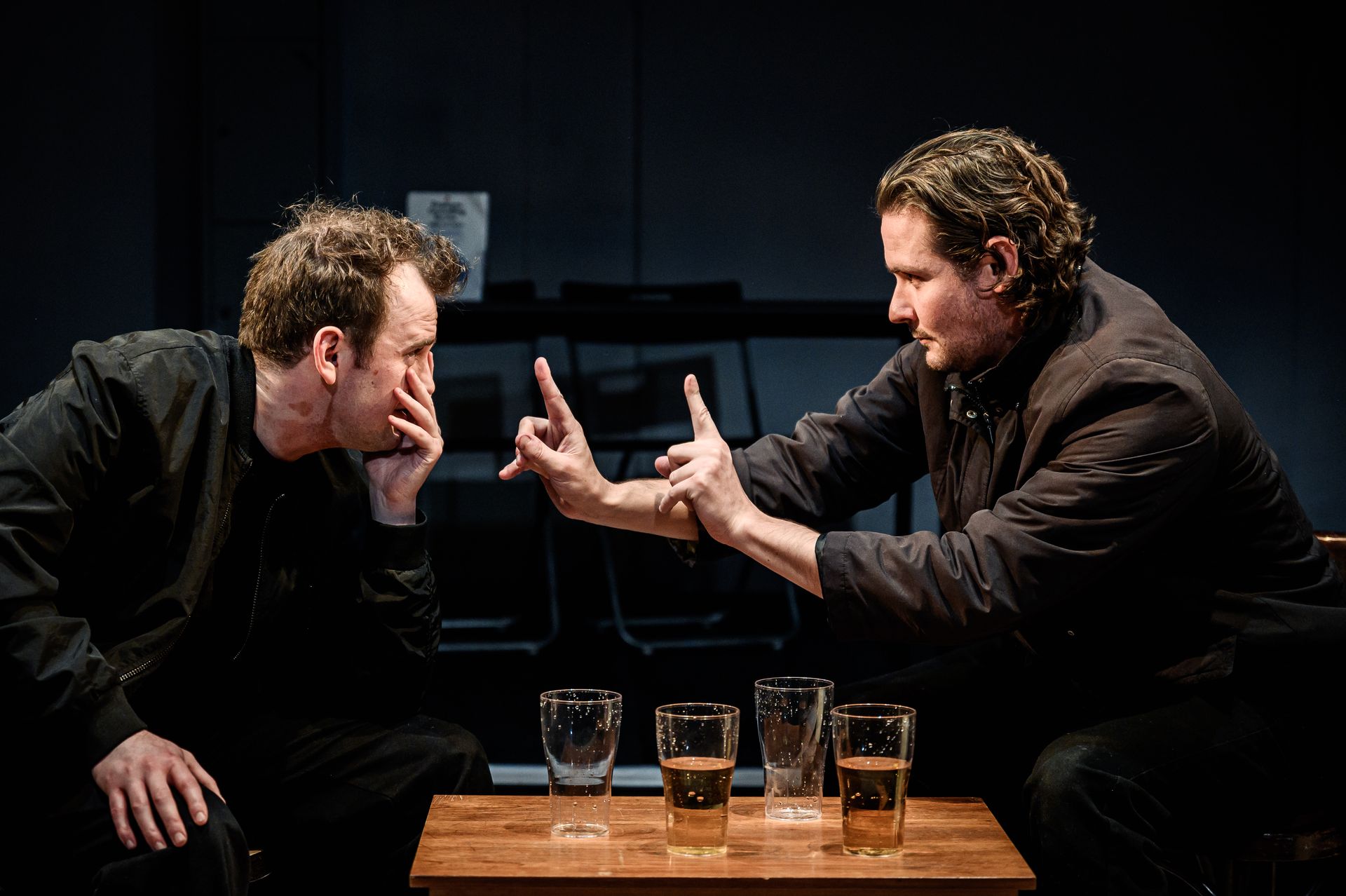
‘Important themes that could be pushed further’ ★★★
Blood On Your Hands is the story of a Ukrainian veterinarian, Kostyantyn (Shannon Smith), who has come to the UK to seek work: but can only find a job in a slaughterhouse. His apparent shame at this failing leads him to lie to his wife Nina (Kateryna Hryhorenko, herself a Ukrainian), who is still in Ukraine raising their children. Outside, protestors chant slogans about cruelty in the meat industry, and inside, management withholds the pay of the workers when the slaughterhouse is forced to close early one day. But Kostyantyn finds a friend in his colleague Dan (Phillip John Jones), a local lad who has his own burdens around whether he is fulfilled.
This premise might already make one thing clear: I found this an almost relentlessly bleak play. There was a low, bourdon note almost constantly playing in the background. Projections on the rear wall show us the cold, white tiles of a slaughterhouse. The characters are introspective, their lives dead-end, their dreams unreachable.
Thank goodness then for a terrific scene set in the local pub, where Kostyantyn and Dan go for drinks after work. The play really started to breathe at this point; the characters got to show a bit more range as we saw them shift from sober to drunk, they can dance, sing, and, when it returns to its darker tone, fight. The source of this conflict is provided by Dan’s old school frenemy (Jordan El-Balawi, playing multiple roles), who’s ‘got a job in marketing’ and likes the ‘gin bars in London,’ and hammers home Dan’s despair at still being in his home town, living at his mum’s. He even accidentally/not accidentally calls Kostyantyn a Russian, which provoked an audible reaction from the audience. This scene had some of the best writing, the best conflict, and allowed the actors to flex their muscles.
There were other interesting thematic concerns, too. There’s a punchy point being made if a trained vet is working in the same role as the local who, we are shown, has done nothing with his life. We get glimpses into Kostyantyn’s life as a migrant worker: the terrible, overcrowded living space, the difficulty in assimilating and learning a language, the pressure to provide for a family at home. The injustice of the workplace is also effectively portrayed; details such as flyers for workplace counselling, accessed by ‘simply logging into the online portal’ reveal the gulf of understanding between the systems we are expected to operate in, and our actual lived experience of them.
Lots of the play, though, felt like it could be turned up a notch or two. I found myself more invested in Dan’s story than Kostyantyn’s, which felt the wrong way round. I felt I learnt more about Dan as a character: it felt like his character had a greater range of scenes and reactions to learn from, including a flashback to see him with his then girlfriend Eden (Liv Jekyll) who, in the present, is now one of the protesters outside the slaughterhouse. This provided more backstory for Dan, but, other than adding pressure onto him, it wasn’t clear what role the protesters had. The actions of the meat industry itself are not really explored, more just a framing device for Kostyantyn’s life and work.
Similarly, I thought the Ukrainian connection could have been cranked up. We see some news reports projected about the start of the war, and there is that ominous sense of dread about what we know is about to come. But the character of Nina felt like she was there just to raise the stakes for Kostyantyn, a reason for him to lie and thus create pressure on himself. It didn’t feel clear as to why he felt the need to lie about where he worked, other than embarrassment.
A protagonist needs to have the most agency, and Kostyantyn didn’t have enough. In films such as I, Daniel Blake, where Daniel is let down by the benefits system, we see his care and generosity towards others, teaching children his carpentry skills. Or, closer still to this play, God’s Own Country, where a Romanian migrant works on a farm and has a relationship with the farm owner’s son. These films show people trying to survive in impossible situations, but it is the tenderness and warmth in them that can simultaneously balance, yet also emphasise the bleakness. We need to see a softer side to some characters for us to feel truly invested.
Reviewed by Jonny Kemp
Photography: Charles Flint
BLOOD ON YOUR HANDS
Written by Grace Joy Howarth
Southwark Playhouse
17th January – 3rd February
https://southwarkplayhouse.co.uk/productions/blood-on-your-hands/
